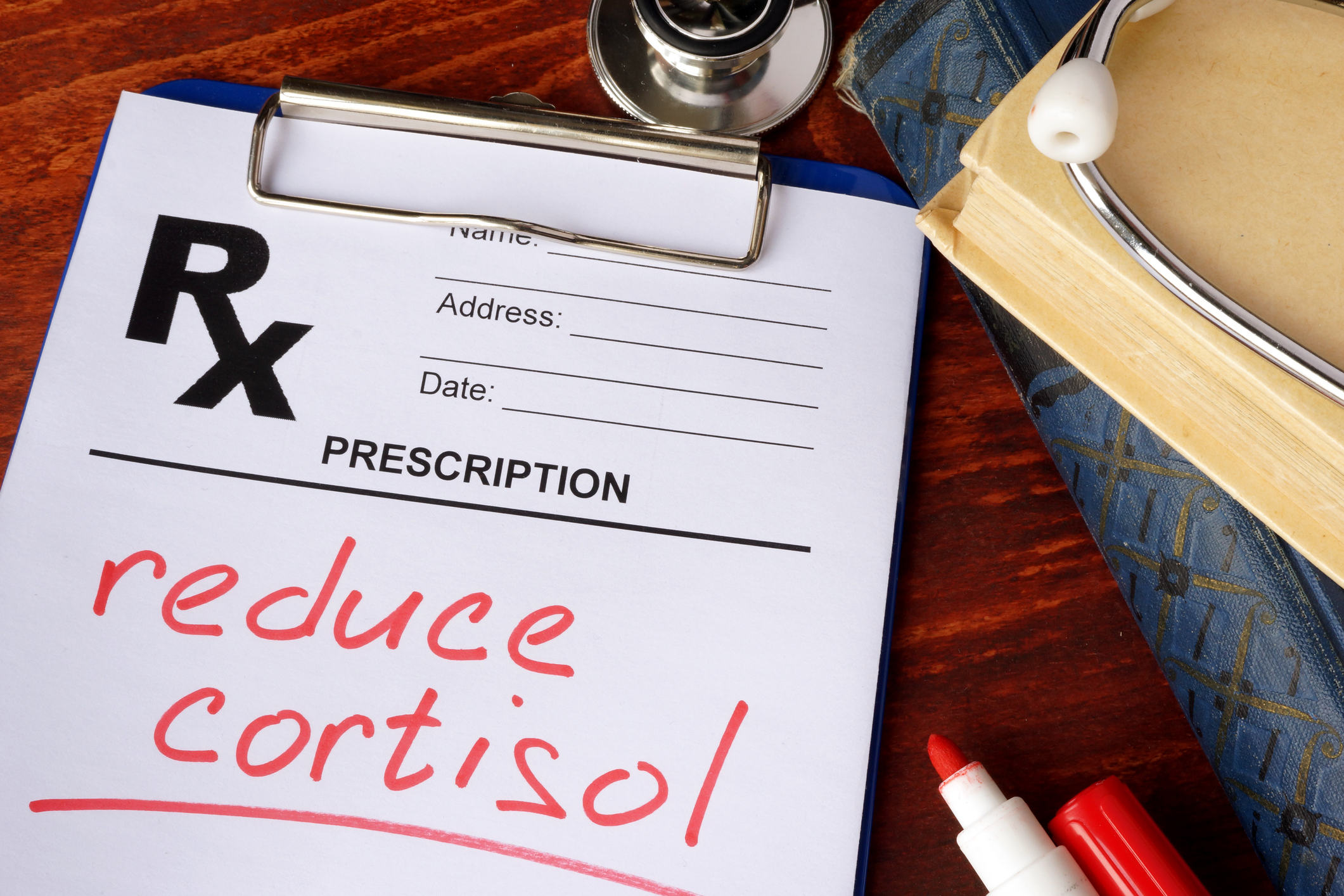Get Easy Health Digest™ in your inbox and don’t miss a thing when you subscribe today. Plus, get the free bonus report, Mother Nature’s Tips, Tricks and Remedies for Cholesterol, Blood Pressure & Blood Sugar as my way of saying welcome to the community!
Tired, depressed and hurting? Could be adrenal fatigue

Adrenal fatigue, also referred to as adrenal exhaustion, is a common condition.
Most likely, you or someone you know is experiencing it right now.
It may be at the root of your constant lack of energy, lack of desire and general malaise. But it can be difficult for some doctors to diagnose, and you’ll get little help from your conventional medical doctor.
You need to know how it may be affecting you right now, what causes it, and how you can treat it — to get your life back.
Your adrenal glands and cortisol
Your adrenal glands sit right next to your kidneys and produce adrenaline when you have a “fight-or-flight” need. The outer portion produces hormones including cortisol for mental, emotional or physical stress needs. It also produces your sex hormones such as testosterone and/or estrogen. It is the cortisol to which I will now focus.
Cortisol is your “anti-stress” hormone. It is normally secreted as a response to physical or mental stress to quickly free up energy reserves (raises blood sugar), stimulate appetite, maintain adequate blood pressure, and boost your immune system.
Most anyone who has suffered adrenal fatigue symptoms for very long will discover they won’t find treatment for it from prescription medications. That’s because the subtle symptoms of a stressed adrenal gland are not even recognized by most conventional medical doctors. But there are specific signs to watch for if you’re suffering from this 21st-century stress syndrome…
Symptoms of adrenal excess
What happens over the years when a person is constantly or repeatedly under high-stress demands — physical, mental or emotional? Similarly, what happens if a person is a constant worrier or just keeps a high-strung fast-pace life?
You guessed it… they suffer from excess cortisol production — which diminishes hormone production of testosterone and estrogen (a.k.a. the “cortisol steal” phenomenon). Elevated cortisol levels cause one or more of these seven heralding signs or symptoms:
- Daytime fatigue: But you may get a second wind of energy at bedtime.
- Not sleeping well: Cortisol blocks your sleep hormone melatonin so you toss and turn during the night and cannot turn off your thoughts very easily.
- Weight gain around the middle: The classic apple-shape obesity that occurs even if you are exercising and eating healthy.
- Craving unhealthy foods: Cortisol increases hunger to supply energy for your stress needs.
- Gastrointestinal symptoms: Nausea, heartburn, diarrhea, or constipation (with or without abdominal pain) comes in part from excess cortisol secretion.
- Sex hormone imbalances: This occurs due to the “cortisol steal” effect mentioned above.
- Depressed mood: This happens because high levels of cortisol suppress serotonin (a key feel-good hormone) production.
- Accelerated aging: Your facial skin can begin to look older than stated age.
But your stress isn’t the only culprit that can trigger excess cortisol production. When there’s too much insulin in your bloodstream, your adrenal glands are also stressed. It doesn’t matter if you have diabetes or not. Long before you’re diabetic or prediabetic, unbalanced insulin levels can start affecting your body.
In fact, if your insulin is out of whack, it can be a warning for any number of chronic diseases beyond diabetes, including heart disease and cancer.
Insulin is part of the reason your conventional doctor won’t be much help with adrenal fatigue. If you don’t fit neatly into his checklist for diabetes, he won’t look further into how insulin may be factoring into your other symptoms.
Your taxed adrenal gland can’t keep up with stress demands
After years of an insulin imbalance or excessive stress on your delicate endocrine glands, the adrenal glands can’t keep up with cortisol demands. We call this adrenal fatigue… leading to adrenal exhaustion. The following symptoms begin to emerge:
- Morning fatigue: You have trouble getting out of bed in the morning.
- Chronic tiredness even after you wake up in the morning.
- Trouble thinking clearly or finishing your tasks: Especially when under pressure.
- Afternoon feeling of sleepiness or brain fog from 2 to 4 p.m.
- Burst of energy late in the day.
- Anxiety: Jitters, nervous stomach, panic or even paranoia are real physical sensations due to the stimulating effect of adrenaline, which kicks in more as you run low on circulating cortisol to handle stress.
- Pain: Headaches and backaches worsen because elevated cortisol also increases your sensitivity to pain.
- Catching colds or infections easily: Occurs because cortisol is an immune system-boosting hormone.
- Cannot deal with stress very well: You have nervous or irritable behavior or a nervous laugh to cover embarrassment, frustration, or despair.
- Drop in blood pressure when going from lying to standing.
As well as these less common symptoms:
- Sweet and salty food cravings.
- Hair loss slowly or in patches.
- Skin rashes, eczema, psoriasis, and hyperhidrosis (sweating in armpits, palms, or bottoms of feet).
- Allergies causing symptoms of draining nose, itchy throat, irritated eyes, or tightness in the lungs (asthma).
Editor’s note: Are you feeling unusually tired? You may think this is normal aging, but the problem could be your master hormone. When it’s not working, your risk of age-related diseases skyrockets. To reset what many call “the trigger for all disease” and live better, longer, click here to discover The Insulin Factor: How to Repair Your Body’s Master Controller and Conquer Chronic Disease!













